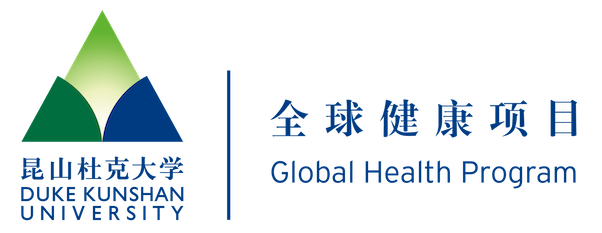The “2024 China Global Health Leadership Capacity Building Training Program” was successfully held from June 16 to 26, 2024, in Kunshan and Beijing. The 2024 program, supported by the Health Human Resources Development Center at the National Health Commission of China and sponsored by the Bill & Melinda Gates Foundation, was co-organized by the Global Health Research Center at Duke Kunshan University and the Institute of Asian Studies at China Foreign Affairs University.
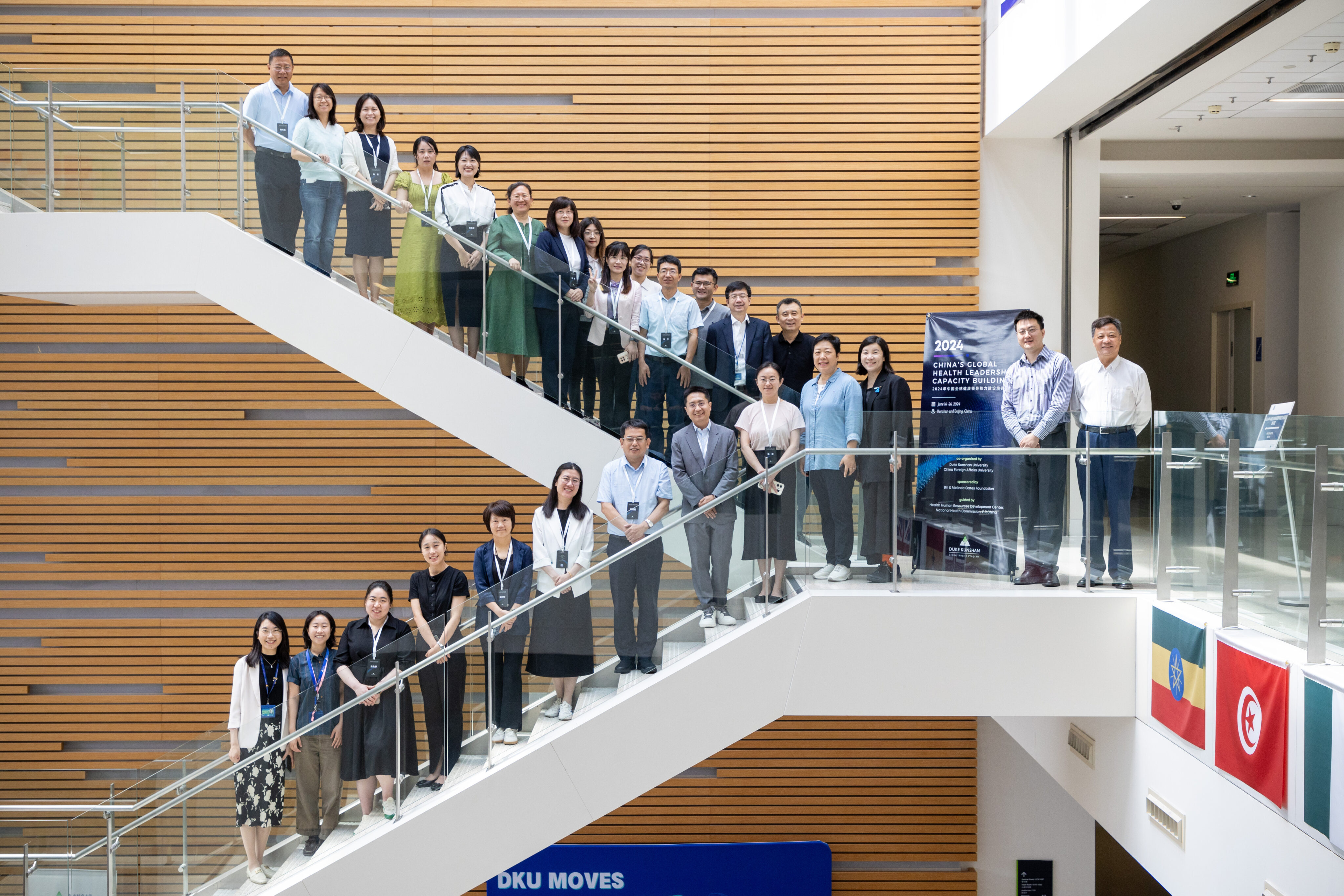
The program aims to strengthen China’s global health talent pipeline by offering the program fellows a broadening understanding of global health so they can better prepare for future participation in global health projects and practices. In May 2023, Duke Kunshan University successfully hosted the first training in collaboration with Peking Union Medical College. This year, a new cohort of 22 trainees from governmental health departments, universities, and medical institutions across the country participated and completed the program training.
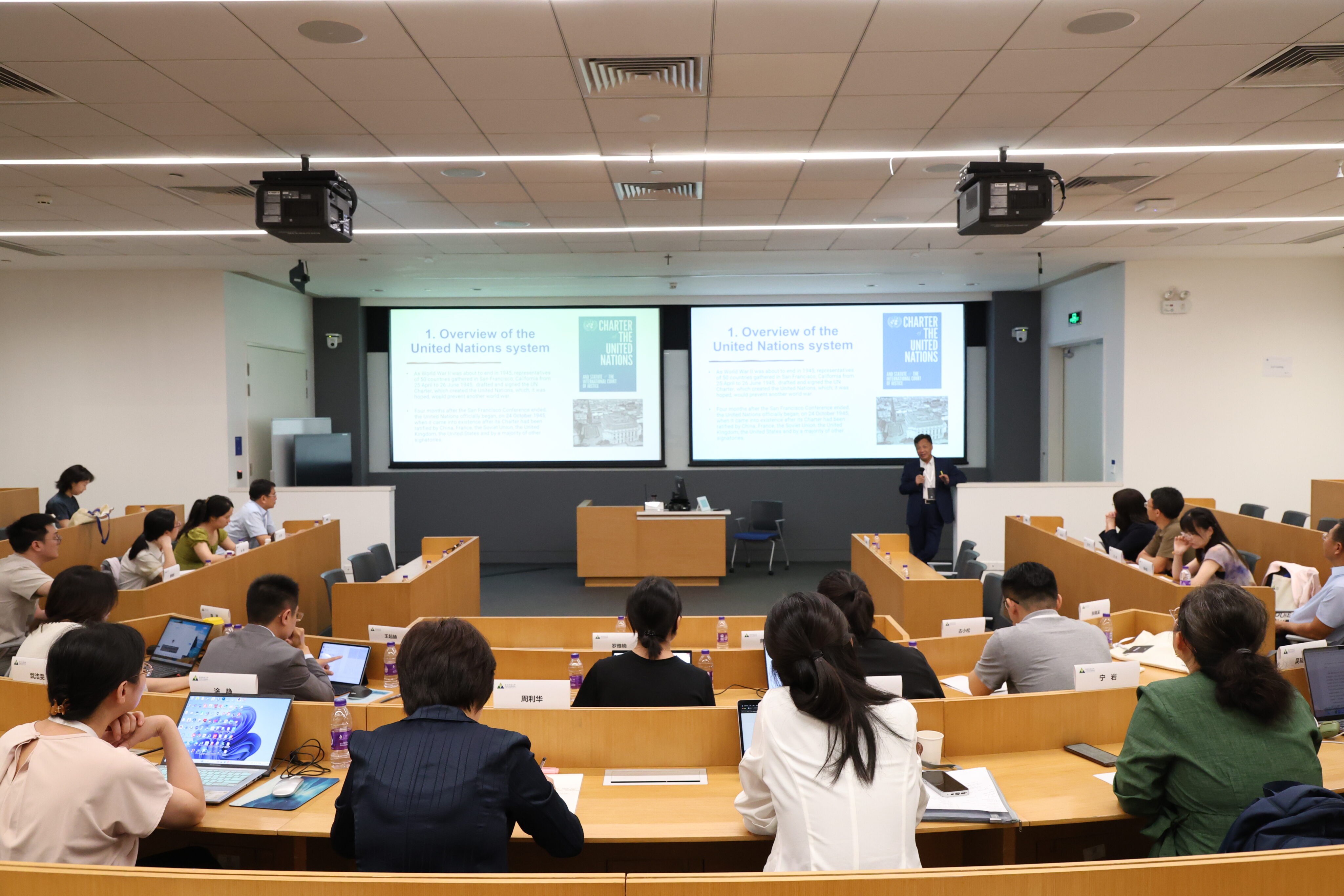
The opening ceremony on June 17 was hosted by Professor Shenglan Tang, Founding Director of the Global Health Program at Duke Kunshan University. Mr. Fang Jianning, Deputy Director General of the Health Human Resources Development Center at the National Health Commission, and Professor Scott MacEachern, Vice Chancellor for Academic Affairs at Duke Kunshan University, attended the ceremony. Professor Tang introduced the background and history of the program, while Professor MacEachern warmly welcomed the visiting leaders and participants, emphasizing global health’s critical role in the university’s mid- and long-term development strategies. Mr. Fang expressed heartfelt thanks to all organizing and participating parties and emphasized the training principles and learning rules to the trainees.
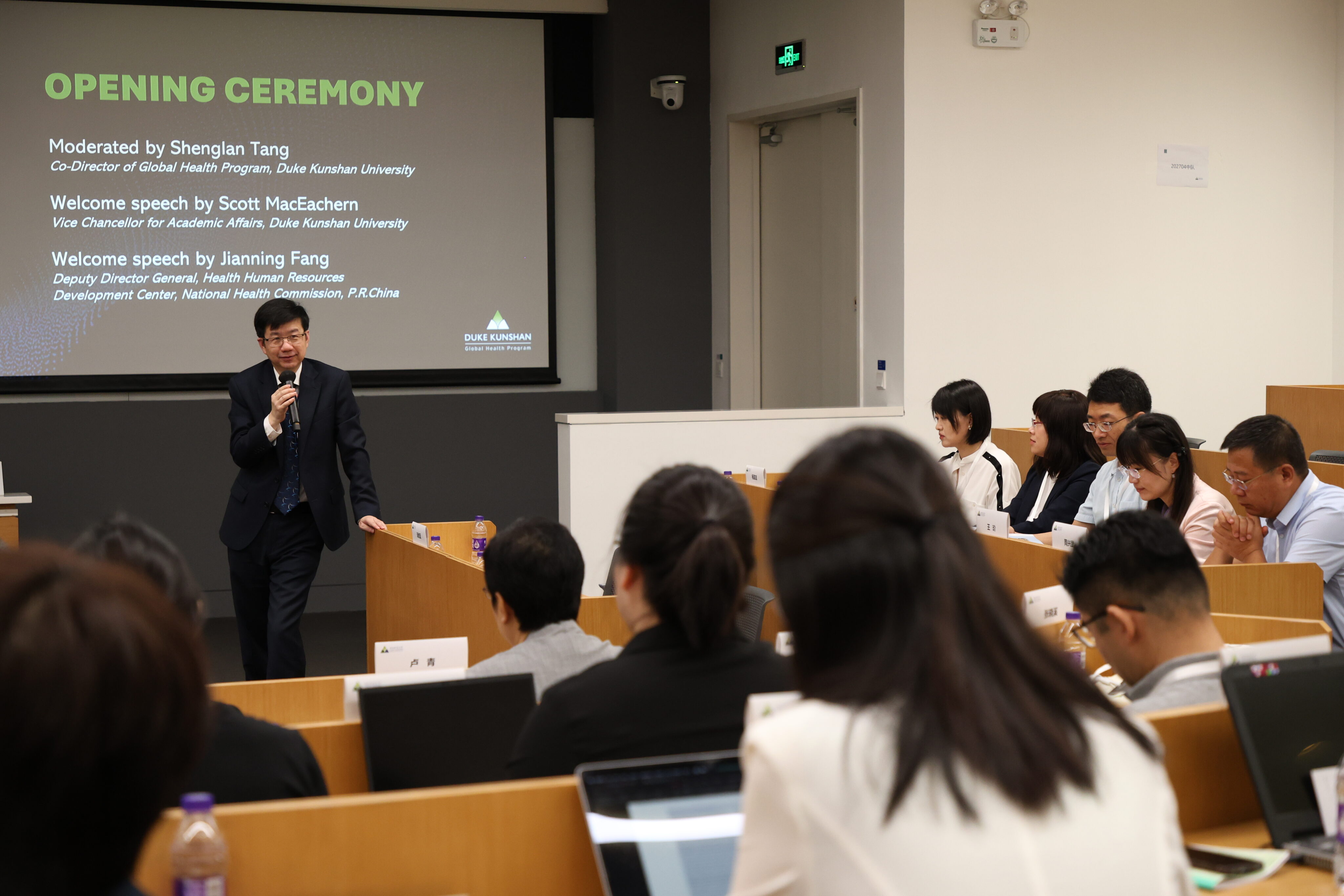
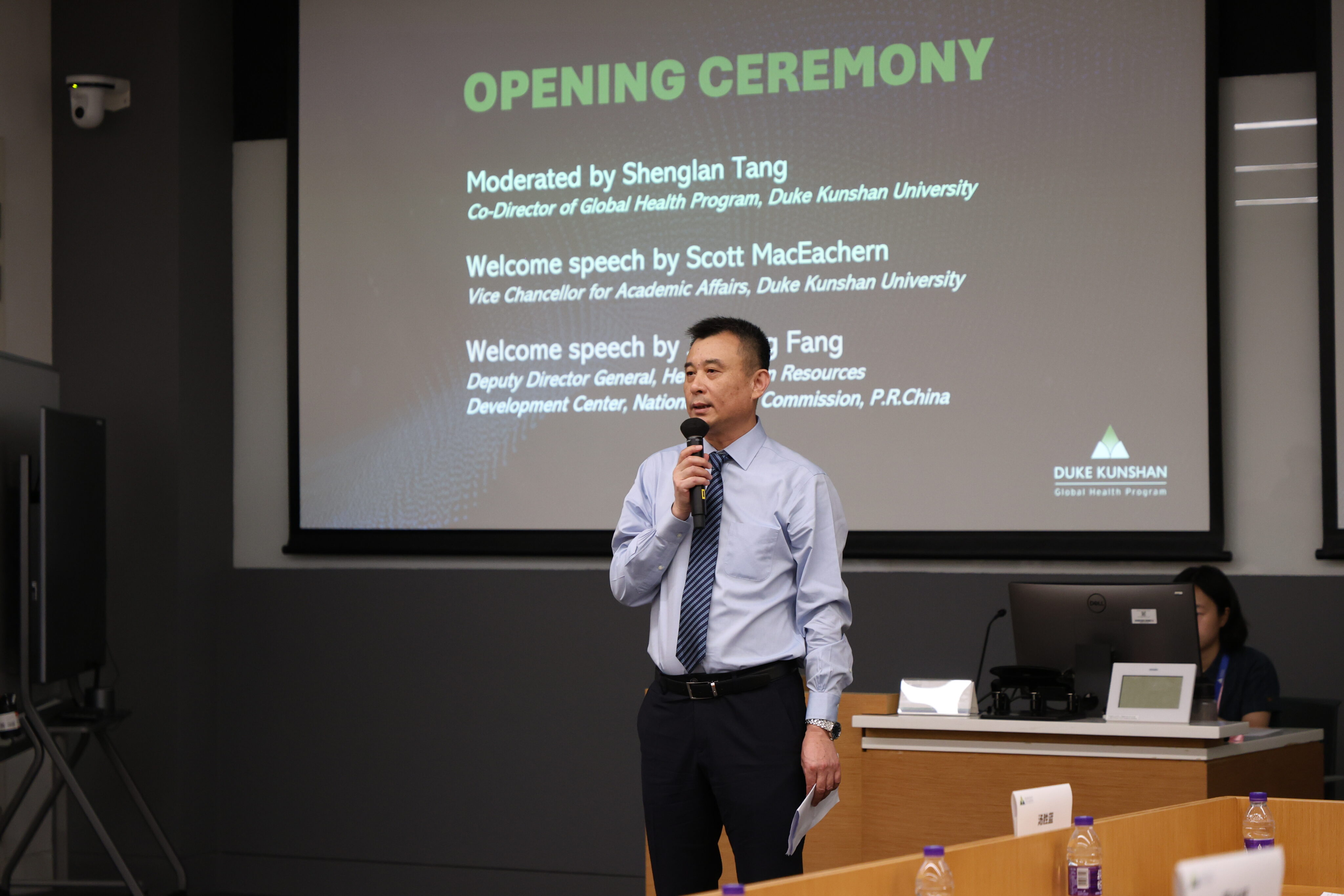
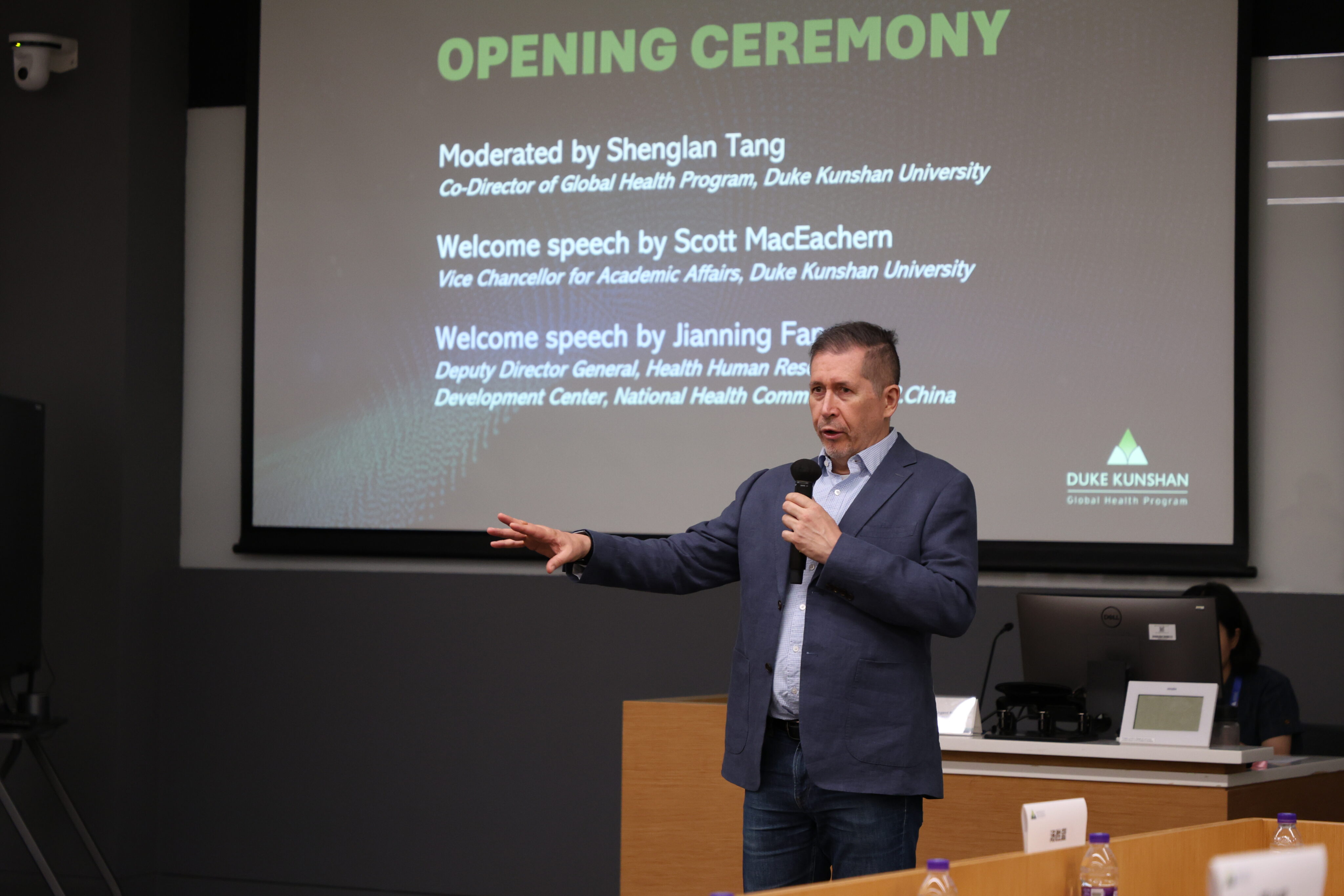
The training program featured over twenty experts and global health leaders from governmental departments, leading academic and medical institutions, and international organizations. They provided a comprehensive overview of the history, agenda, and future outlook of global health, major players of global health, global health diplomacy theories, and the role of China in global health governance. The training also covered topics like climate change, maternal and child health, food policy, antimicrobial resistance, tuberculosis, and neglected tropical diseases.
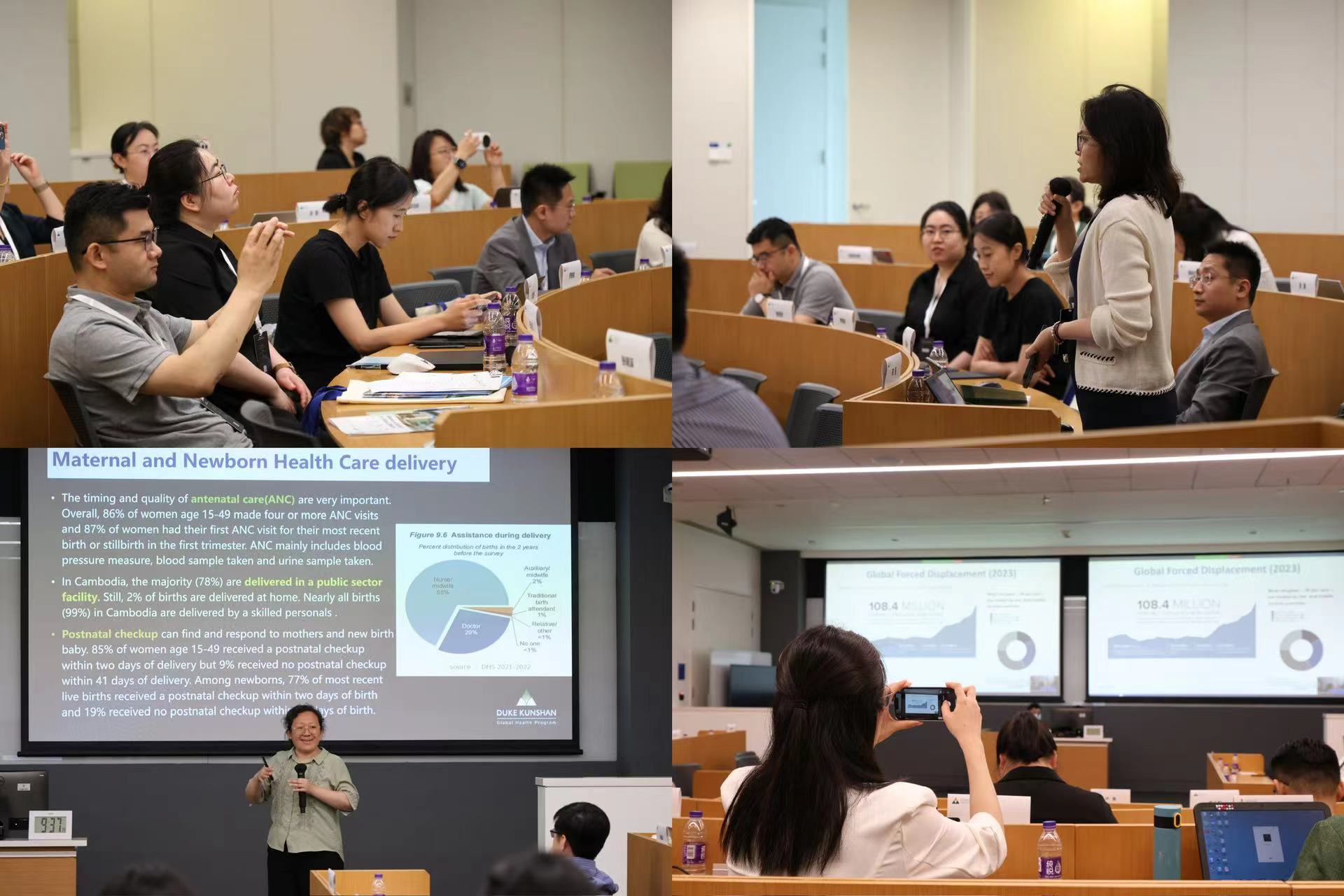
In addition to attending collective lectures, trainees engaged in group projects and presentations. Professor Yun Guo Liu, Co-Director of the Global Health Program at Duke Kunshan University, supervised the group work, providing guidance and constructive feedback during the final presentations. The Kunshan part of the program also includes a field trip at the Jiangsu Institute of Parasitic Diseases on June 20th, providing the trainees with first-hand insights into China’s efforts in international cooperation for schistosomiasis control, other parasitic disease prevention, and public health capacity building.


The closing ceremony was held in Beijing on June 26. Mr. Li Fujian, Deputy Director of the Center for Global Biosecurity Governance at China Foreign Affairs University, announced the certificate receivers’ names. Fang Jianning, Deputy Director of the Health Human Resources Development Center at the National Health Commission, Shenglan Tang, Co-Director of the Global Health Program at Duke Kunshan University, and Yang Yue, Deputy Director of the Institute of Asian Studies at China Foreign Affairs University awarded the certificates to the program trainees.
In her closing remarks, Prof. Yang Yue encouraged the participants to enhance their network with the program fellows and established collaboration in their future work, adding bricks and mortar to the cause of global health. The program also received positive feedback from the trainees. It has also provided an invaluable opportunity to build up the global health experts community and contributed to the capacity building of China’s health diplomacy talent pool.
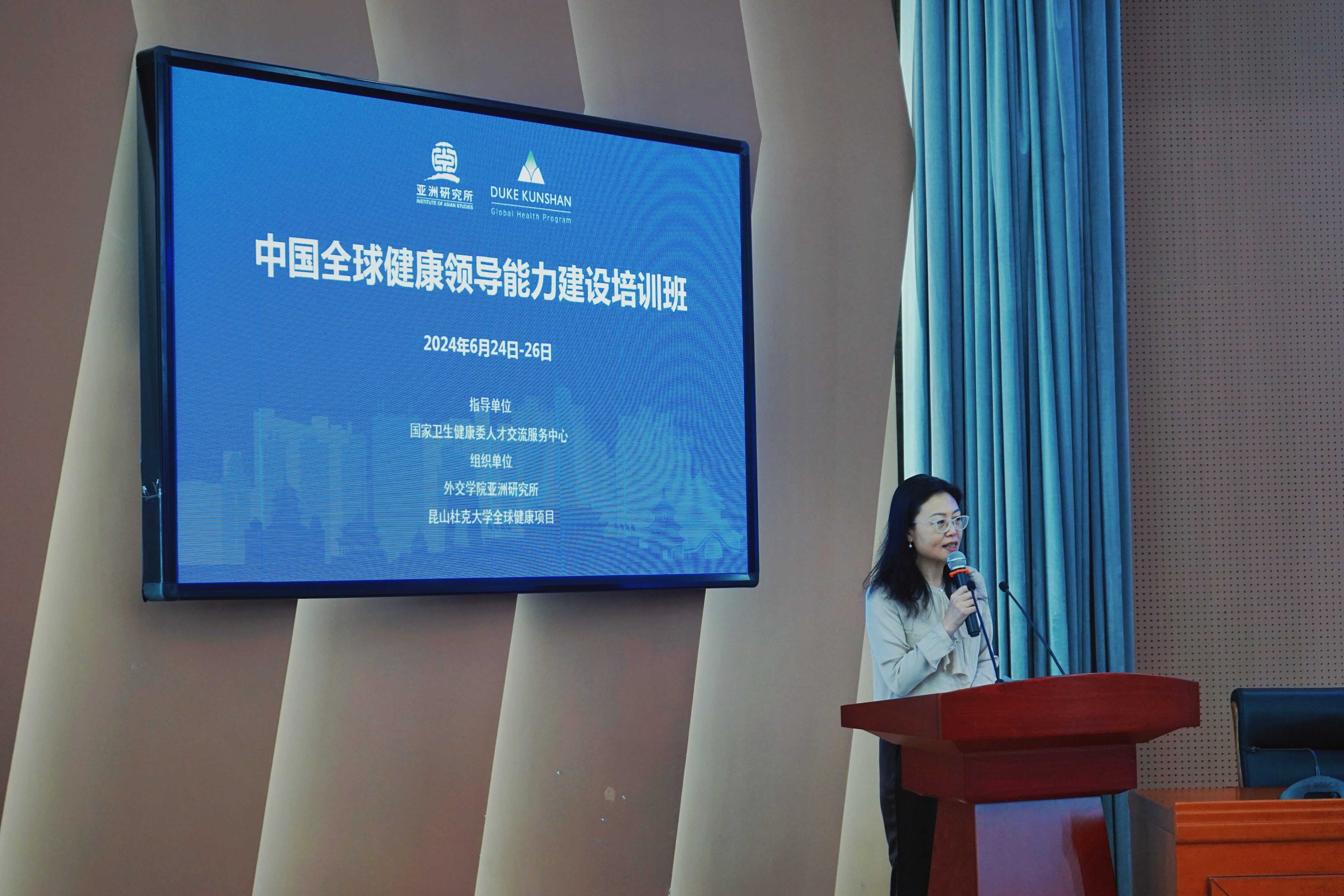
China is stepping into the center of the world stage, shouldering more responsibilities as a major player in international affairs. The 20th National Congress of the CPC reaffirmed the nation’s commitment to actively participating in the reform and construction of the global governance system. In this context, the development and training of talent are pivotal to China’s ability to play a more prominent role in global health governance.
The Global Health Program at Duke Kunshan University has always been committed to improving health equity in China and globally, making talent education one of its four strategic pillars. We are dedicated to continuing our efforts in global health talent development and capacity building, and to advancing China’s global health diplomacy. With this commitment, we aim to make a profound impact in the vision of Health for All, inspiring hope and optimism for the future of global health.
